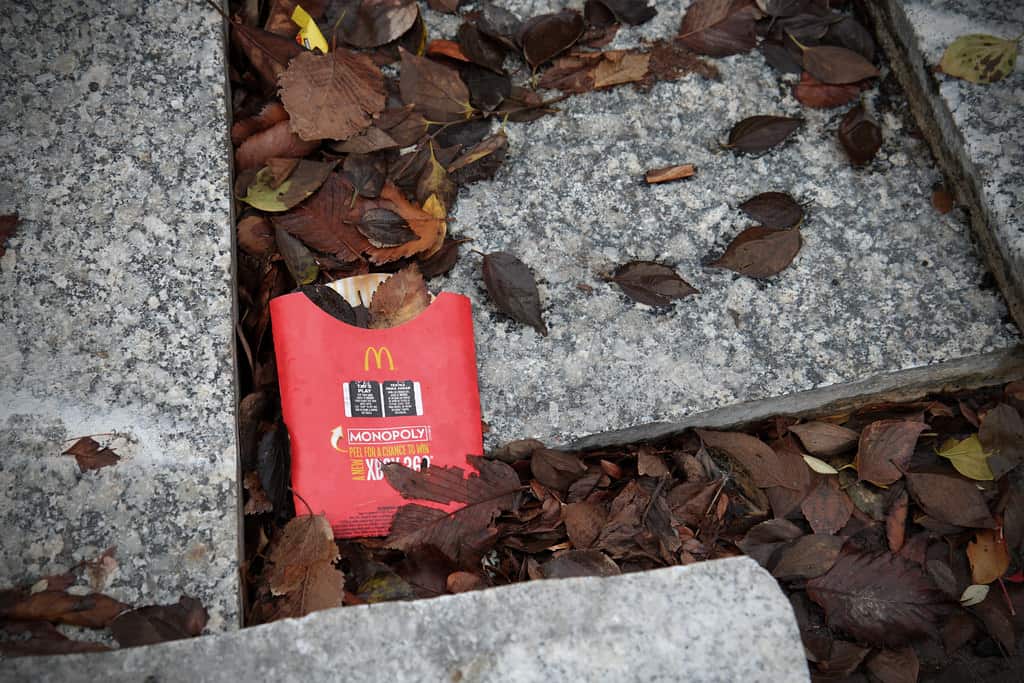An interesting and thought-provoking article in The Conversation got us thinking about the effect that junk food has on the environment, beyond the nasty packaging waste you find dumped out of cars or dropped along paths and urban areas.

Image source
Junk food packaging waste
A growing worldwide population and increasing demand on meat
“The global food system accounts for around 25% of greenhouse gas emissions, 70% of water use and 38% of land use.” Naturally rearing and supplying livestock requires large amounts of land and energy to support the world’s growing population and love of meat, dramatically so as the other side of the world adapts to Western diets.
‘Junk food’ is considered a ‘discretionary food’, or non-essential food for dietary purposes in Australian food standards and the average Australian diet consume more energy than necessary. We’re not as gluttonous as Americans, and some European countries, but we’re certainly up towards the top of the list. So, as well as decreasing the strain on livestock/agriculture it will also help the waistline of the average Australian diet to cut down on some of the discretionary, high caloric foods.
Australia’s caloric intake grows, along with its waistline
“If less discretionary food is produced, this means either that more unprocessed ingredients are available in their more nutritious forms, or that less agricultural production is necessary. Both could reduce environmental impacts.”
Read more about this and what can be done in the long term in the original article


